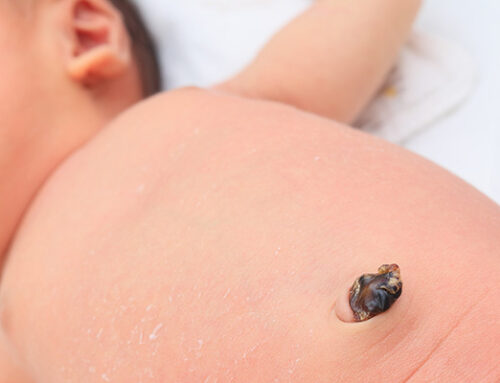Welcoming Baby: A Gentle Guide to Preparing Your Child for a New Sibling
Welcoming a new baby into the family is an exciting and transformative experience, but it can also bring challenges—especially for older siblings. Whether your child is a toddler, school-aged, or a teenager, each age group will have different reactions and needs when adjusting to the new family dynamic. By taking proactive steps, parents can help their children embrace the arrival of their new sibling with excitement rather than apprehension.
The Emotional Impact of a New Sibling
Research shows that the birth of a sibling significantly impacts a child’s emotional and social development. According to a study published in Pediatrics (2017), children under five may exhibit more behavioral changes (such as regression or tantrums) when a new baby arrives, while school-aged children may experience a mix of excitement and jealousy. Teenagers, meanwhile, are often more emotionally equipped to handle the transition but may struggle with feelings of being overlooked.

Understanding these dynamics can help parents tailor their approach to introducing a new sibling. Here’s a guide on how to help children of different age groups adjust:
Preparing Toddlers (Ages 1-4) for a New Sibling
Toddlers are at a stage where they are deeply attached to their parents and may struggle with the idea of sharing attention. Here are some ways to help them adjust:
- Use Simple and Positive Language
Since toddlers have a limited understanding of complex concepts, explain the pregnancy in simple terms. Say things like, “Mommy has a baby in her tummy, and soon you’ll have a little brother or sister to play with!”
- Read Books About New Babies
Children’s books can help toddlers visualize what’s coming. Great options include:
- I’m a Big Brother! or I’m a Big Sister! by Joanna Cole
- The New Baby by Mercer Mayer
- Practice with a Doll
Giving your toddler a baby doll to “take care of” helps them understand what it’s like to have a baby around. Encourage them to “feed” and “change” the baby to get used to the idea of caregiving.
- Involve Them in Baby Prep
Let your toddler be a part of the excitement by allowing them to help decorate the nursery, choose baby clothes, or even feel the baby kick.
- Maintain Routines
Research from the Journal of Child Psychology and Psychiatry (2021) highlights that toddlers thrive on routine. Try to keep their daily schedule as stable as possible to provide security during this transition.
Helping School-Aged Children (Ages 5-11) Adjust to a New Sibling
Children in this age range are more aware of family dynamics and may have mixed emotions about a new sibling. Some may be thrilled, while others may feel jealous or worried about losing attention.
- Have Open and Honest Conversations
School-aged children can comprehend more details about pregnancy and babies. Explain what will happen when the baby arrives, emphasizing how they will play an important role in their sibling’s life.
- Answer Their Questions
Expect questions like:
- “Where do babies come from?” (Keep answers age-appropriate!)
- “Will I have to share my toys?”
- “Will you still have time for me?”
Reassure them that your love and attention won’t change.
- Let Them Help Prepare
Encourage involvement by allowing them to help pick baby names, pack the hospital bag, or organize baby items.
- Set Aside Special Time Together
Make sure to continue special activities with your older child, such as bedtime reading, movie nights, or playdates, to reinforce their importance in the family.
- Encourage Their Role as a Big Sibling
Make them feel special by giving them a “big brother” or “big sister” badge and discussing how they can be a great role model.
- Be Patient with Regression
Some children may act younger (wanting a bottle again or using baby talk) to regain attention. Pediatric experts from American Academy of Pediatrics suggest responding with understanding rather than discouragement.
Supporting Teenagers (Ages 12-18) as They Welcome a New Sibling
Teenagers often understand the concept of a new sibling but may feel indifferent or concerned about how their role in the family might shift.
- Respect Their Space and Boundaries
Teens are developing their independence, and they might not be as interested in the baby as younger siblings. That’s okay—don’t force interaction.
- Include Them in Decision-Making
Give your teen a sense of responsibility by letting them help choose the baby’s name, assist with baby-proofing, or even take part in decorating the nursery.
- Acknowledge Their Feelings
If they feel overlooked, make an effort to spend one-on-one time with them. A National Institute of Child Health report (2020) found that teens who feel valued in family changes have higher self-esteem and better sibling relationships.
- Allow for Natural Bonding
Rather than pressuring a relationship, let bonding happen naturally. Encourage them to read to the baby, help with diaper changes (if they want), or just talk to their new sibling.
- Address Concerns About Family Changes
Reassure your teen that their role in the family won’t diminish. If they express concerns about being “too old” to connect with the baby, remind them that sibling bonds grow over time.
Regardless of age, each child will have their own way of adjusting to a new sibling. The key to a smooth transition is communication, reassurance, and continued attention to their needs.
Interesting Statistics on Sibling Adjustments
- 60% of parents report that their older child showed behavioral changes after a new baby arrived (Child Development Journal, 2018).
- Firstborn children often experience a temporary dip in academic performance after a sibling’s birth, but they recover within a year (Journal of Family Psychology, 2019).
- Siblings who are involved early in baby care are 40% more likely to develop a close bond later in life (National Sibling Study, 2021).
By understanding the different needs of toddlers, school-aged children, and teens, parents can foster a loving and supportive environment for the whole family. With patience and thoughtful preparation, older siblings can transition into their new roles with excitement and confidence.




